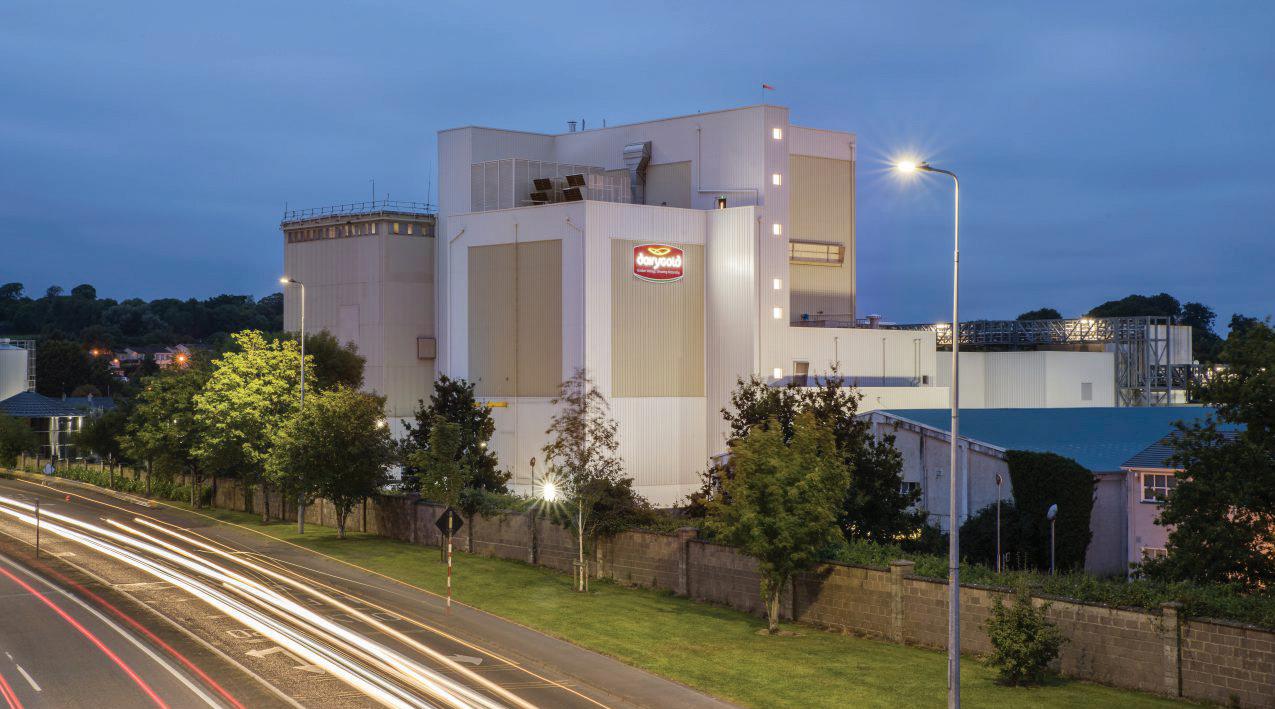
2 minute read
Dairygold
DAIRYGOLD
Farming for the Future
Dairygold’s carbon reduction plan addresses emissions at source and sets ambitious targets to achieve 40 per cent reduction intensity on farm by 2030 and a 3 per cent annual reduction at factory

Dairygold’s carbon reduction plans aim to reduce emissions at source (with targets to achieve 40 per cent reduction intensity on farm by 2030 and a 3 per cent annual reduction at factory), achieve net zero, provide economic structures for technology access and change behaviours.
Dairygold is Ireland’s largest CoOperative processing over 1.4 billion litres of milk annually and supporting thousands of farmers, with a long and proud history over 150 years of producing quality-assured, sustainable gold standard cheese and dairy ingredients.
Over 90 per cent of Dairygold’s total emissions originates from farms, specifically cows and farming practices like fertiliser use. As sustainability is a key factor in the purchasing decisions of the global food companies that Dairygold supply, demonstrating sustainable farming practices is critical to Dairygold’s future success.
“Dairygold’s carbon reduction roadmap acknowledges our operational attributes to climate change and identifies reduction strategies that deliver impactful results. As a local food business involved in infant milk nutrition, our imperative is to protect our Munster ‘Golden Valleys’ while nourishing our future generations. As a co-operative, our local community is the backbone of Dairygold operations,” says Keerti Krishnan-Murphy, Sustainability Manager, Dairygold.
SUSTAINABLE PRODUCTION In 2013, the Board introduced the Sustainable Dairy Assurance Scheme (SDAS)—a national project designed to guarantee the highest quality milk production standards and encourage suppliers to farm more sustainably. Dairygold now has full participation on that scheme.
This was followed in 2019 by a new Sustainability Bonus unique to Dairygold producers who participate in a dedicated Milk Recording and Herd Health programme. Dairygold view this as a longer-term initiative to improve overall Herd Health and performance across their milk supply—maximising milk solids per cow and ultimately leading to a more sustainable milk production base, improving the financial and environmental sustainability of its primary producers.
Dairygold’s ‘Green Grow Soil Health’ programme provides tailored soil health maps, localising chemical fertiliser spread and its reduction by c.20 kg/ hectare/year. In 2020, Dairygold set a minus 40 per cent intensity target by 2030 and developed 10 signpost farms. In 2021, 40,000 native trees were planted, improving farm biota, and aiming for net zero carbon. The cumulative impact enabled low carbon against peers for three consecutive years.
At factory, carbon is linked to energy use. With c. 96 per cent energy consumption covered under ISO 50001 Energy Management System, Dairygold have put in place an annual 3 per cent energy intensity reduction target. Dairygold has been operating on renewable electricity since 2020 evading c.14,000 tCO2e and c.10% biogas, evading c.4,000 tonnes of carbon annually.







